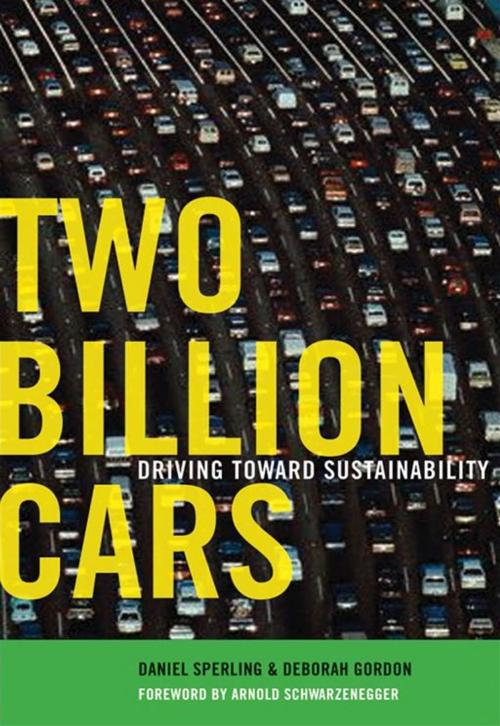Two Billion Cars : Driving Toward Sustainability
Nonfiction, Social & Cultural Studies, Political Science, Government, Public Policy| Author: | Daniel Sperling;Deborah Gordon;Arnold Schwarzenegger | ISBN: | 9780195376647 |
| Publisher: | Oxford University Press, USA | Publication: | December 15, 2009 |
| Imprint: | Language: | English |
| Author: | Daniel Sperling;Deborah Gordon;Arnold Schwarzenegger |
| ISBN: | 9780195376647 |
| Publisher: | Oxford University Press, USA |
| Publication: | December 15, 2009 |
| Imprint: | |
| Language: | English |
At present, there are roughly a billion motor vehicles in the world. Within twenty years, the number will double to 2 billion, largely a consequence of China's and India's explosive growth. Given that greenhouse gases are already creating havoc with our climate and that violent conflict in oil-rich nations is on the rise, does this mean that matters will only get worse? Or are there hopeful signs that effective, realistic solutions can be found? In Two Billion Cars, transportation experts Daniel Sperling and Deborah Gordon provide a concise history of America's love affair with cars and an overview of the global oil and auto industries. America is still the leading emissions culprit, and what is especially worrying is that developing nations are becoming car-centric cultures as well. The authors explain how we arrived in this dangerous state, and also what we can do about it. Sperling and Gordon expose the roots of the problem-- the resistant auto-industry, dysfunctional oil markets, short-sighted government policies, and unmotivated consumers. They zero in on reforming our gas-guzzling culture, expanding the search for low-carbon fuels, environment-friendly innovations in transportation planning, and more. Promising advances in both transportation technology and fuel efficiency together with shifts in travel behavior, they suggest, offer us a realistic way out of our predicament. Ironically, the authors contend that the two places with the most troublesome emissions problems--California and China-- are taking the lead in developing effective strategies that can help wean us from our reliance on conventional, petroleum-fueled cars. California's embrace of eco-friendly policies, which Governor Arnold Schwarzenegger discusses in the foreword, and China's willingness to confront the twin environmental and energy crises wrought by an exponential growth in cars, suggest that if they can develop ingenious and effective solutions, then there really is reason for hope.
At present, there are roughly a billion motor vehicles in the world. Within twenty years, the number will double to 2 billion, largely a consequence of China's and India's explosive growth. Given that greenhouse gases are already creating havoc with our climate and that violent conflict in oil-rich nations is on the rise, does this mean that matters will only get worse? Or are there hopeful signs that effective, realistic solutions can be found? In Two Billion Cars, transportation experts Daniel Sperling and Deborah Gordon provide a concise history of America's love affair with cars and an overview of the global oil and auto industries. America is still the leading emissions culprit, and what is especially worrying is that developing nations are becoming car-centric cultures as well. The authors explain how we arrived in this dangerous state, and also what we can do about it. Sperling and Gordon expose the roots of the problem-- the resistant auto-industry, dysfunctional oil markets, short-sighted government policies, and unmotivated consumers. They zero in on reforming our gas-guzzling culture, expanding the search for low-carbon fuels, environment-friendly innovations in transportation planning, and more. Promising advances in both transportation technology and fuel efficiency together with shifts in travel behavior, they suggest, offer us a realistic way out of our predicament. Ironically, the authors contend that the two places with the most troublesome emissions problems--California and China-- are taking the lead in developing effective strategies that can help wean us from our reliance on conventional, petroleum-fueled cars. California's embrace of eco-friendly policies, which Governor Arnold Schwarzenegger discusses in the foreword, and China's willingness to confront the twin environmental and energy crises wrought by an exponential growth in cars, suggest that if they can develop ingenious and effective solutions, then there really is reason for hope.















